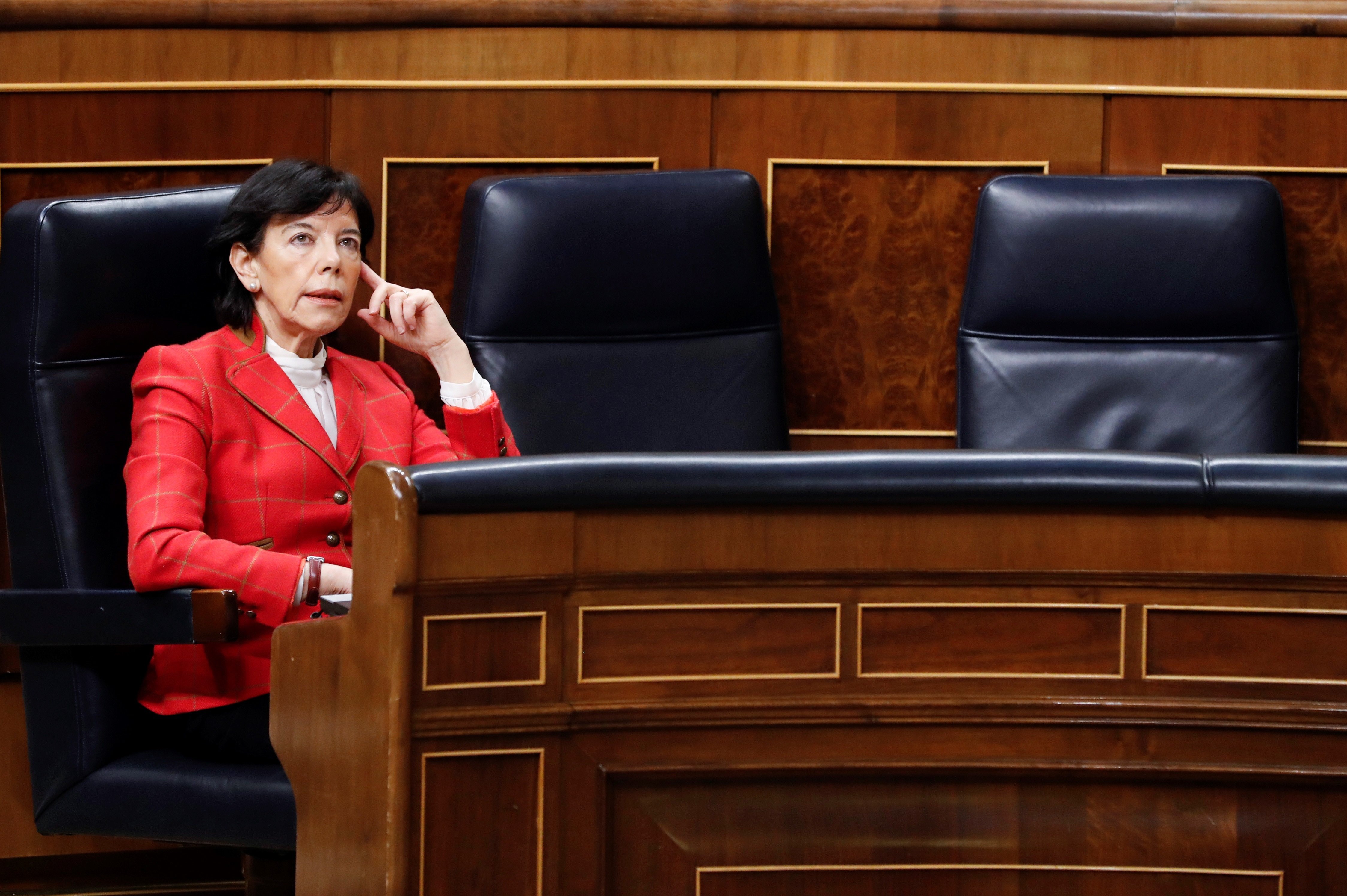The so-called Celaá Law has today completed its passage through Spain's Congress of Deputies. The lower house this afternoon passed the reform proposed by its Education Committee, with some amendments incorporated. Among these, the one which the Catalan Republican Left (ERC) agreed with the Spanish government, to remove the reference to the Castilian language (that is, Spanish) as vehicular language in schools, which has, predictably, caused a political earthquake in Madrid. Now the bill goes on to the Senate, which could also amend it. However, the majorities in the upper house are the same. The parties of the Spanish right turned the chamber into a spectacle with cries of "Freedom, freedom". The show also extended onto the streets around Congress in Madrid, where the right-wing Popular Party (PP) set up a tent to collect signatures against it.
Thus, Congress today gave the green light today approval to the education reform named after the minister who guided it through, the PSOE's Isabel Celaá. There were 178 votes in favour, 147 against and 17 abstentions. It was close, because laws which govern social relations require an absolute majority (176). The support came from the PSOE, Unidas Podemos, ERC, the PNV and some minor parties. The usual suspects opposed it: the three parties of the right, the PP, Vox and Ciudadanos (Cs). These three have already warned that they will appeal the reform to Spain's Constitutional Court. Meanwhile, the other three Catalan pro-independence parties represented, JxCat, PDeCAT and the CUP, all abstained, considering that the new law does not "protect" Catalonia's language immersion policy for the Catalan language - as ERC claims it does - and has many other shortcomings, despite being an improvement on the currently-in-force 'Wert Law' - also named after an education minister. Basque pro-independence party EH Bildu also abstained in the vote.
Chants of "Freedom" from an upset Spanish right as education reform bill goes through
The debate, as expected, was notable for the bitter criticisms traded between the right and the Spanish government and its allies. The spectacle ended with all MPs on their feet, some applauding the bill they had passed - among them, minister Isabel Celaá - while the right-wing parties chanted "Freedom, freedom" and thumped their seats. PP deputy Sandra Moneo said it was a "breach of the constitution." On behalf of Cs, Marta Martín Laguno complained that "[the Spanish government] has done a deal with nationalism" - referring to Catalan and Basque nationalists, rather than Spanish nationalists - and it would "leave thousands of families without legal protection".
The law introduced by Isabel Celaá, which seeks to replace the Wert Law, originally opened the door to the use of Castilian as vehicular language in Catalonia - a situation which does not exist at present. The original text, as approved by the Spanish cabinet, stated that "education administrations shall guarantee the right of students to receive instruction in Castilian, the official language of the state, and in the other co-official languages in their respective territories." It added: "Castilian and the co-official languages are considered vehicular languages, in accordance with the applicable regulations." This wording could have damaged Catalonia's immersion policy of using Catalan as its main vehicular language, a formula intended to ensure that all Catalan students end up bi-lingual in both Catalan and Castilian.
The ERC amendment aimed to "guarantee" the Catalan immersion system. The reference to vehicular languages has been removed. And the wording is as follows: "The education authorities shall guarantee the right of students to receive instruction in Castilian, the official language of the State and in the other co-official languages in their respective territories, in accordance with the Spanish Constitution, the Statutes of Autonomy and the applicable regulations”.
This amendment has been the focus of intense political debate in recent days and weeks, with the political right demanding its rejection. But as well, historical leaders of the PSOE have joined the fray - for example, former Spanish deputy PM Alfonso Guerra, who compared it to the linguistic persecution carried out by the Franco regime.
The education minister said she was "very happy" because the new law "places equity at the centre of the system" and means that "all students have the same opportunities". Isabel Celaá made it clear that the law "does not eliminate Castilian", which is "absolutely guaranteed" under the Constitution and the Autonomy Statutes.
Differences among pro-independence parties
Predictably, ERC applauded the new law, saying that thanks to its amendment, "protects language immersion in Catalonia" and that this "is more than a triumph". MP Montse Bassa addressed the abstaining Catalan MPs of JxCat and the CUP: "If you have any doubts that it protects immersion, just look at the outrage of the whole of the right wing." But Sergi Miquel, from PDeCAT, didn't see it that way: the law, for him, doesn't protect Catalan as a vehicular language. He addressed the right: "You can relax because it will be the [Spanish] education ministry that will have to guarantee that Castilian is taught in Catalonia", because "the article has different interpretations". The CUP doesn't see this protection either. Albert Botran asserted that immersion is "one of the few effective tools enabling resistance against the privileges of Castilian in all other areas".

